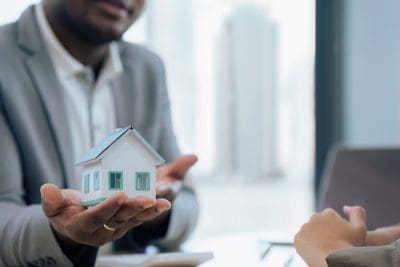Investing in a second home is an appealing idea for many, offering not just a potential financial return, but also the added benefits of personal enjoyment and diversified assets. Whether you’re considering a vacation property in a scenic location or a rental property to generate extra income, owning a second home can be a strategic financial decision. This article explores the myriad reasons why investing in a second home can be a smart move, providing insights into the financial, personal, and practical advantages.
Financial Benefits of a Second Home
Potential for Appreciation
One of the primary financial benefits of investing in a second home is the potential for property appreciation. Real estate historically appreciates over time, meaning the value of your second home could increase, providing a substantial return on investment. By choosing the right location and property, you can capitalize on market trends and benefit from long-term appreciation.
Rental Income Opportunities
Another significant advantage of owning a second home is the potential to generate rental income. By renting out your property when you’re not using it, you can offset mortgage payments, property taxes, and maintenance costs. In popular vacation destinations, short-term rentals can be particularly lucrative, providing a steady stream of income.
Tax Benefits
Investing in a second home can also offer various tax benefits. Mortgage interest, property taxes, and certain expenses related to the maintenance and management of the property may be tax-deductible. Additionally, if you rent out your second home for a portion of the year, you may be eligible for further tax deductions related to rental property expenses.
Personal and Lifestyle Benefits
A Place for Vacations and Getaways
Owning a second home provides a personal retreat for vacations and getaways. Having a dedicated place to escape can enhance your quality of life, allowing you to create lasting memories with family and friends. Whether it’s a beach house, mountain cabin, or city apartment, a second home offers a consistent and familiar environment for relaxation.
Future Retirement Home
A second home can also serve as a future retirement residence. Investing in a property now allows you to secure a comfortable and desirable location for your retirement years. By the time you’re ready to retire, your second home may be paid off or have appreciated in value, making it a financially sound decision.
Legacy for Future Generations
A second home can become a cherished legacy for future generations. It provides a place where family traditions can be built and memories can be created. Passing down a second home to your children or grandchildren can ensure that the property remains in the family, creating a lasting connection and continuity.
Practical Considerations
Diversification of Assets
Investing in a second home allows for the diversification of your investment portfolio. Real estate is a tangible asset that can provide stability and act as a hedge against market volatility. Diversifying your assets by including real estate can reduce risk and improve overall financial security.
Potential for Home Exchange
Owning a second home opens up the possibility of participating in home exchange programs. These programs allow you to trade homes with other property owners in different locations, providing an affordable way to travel and experience new places. This can enhance your lifestyle and broaden your horizons without incurring significant costs.
Control Over Investment
When you invest in a second home, you have more control over your investment compared to other asset classes like stocks or bonds. You can make decisions about property improvements, rental rates, and management strategies, allowing you to directly influence the property’s value and income potential.
Challenges to Consider
Financial Commitment
Investing in a second home requires a significant financial commitment. Beyond the purchase price, you must consider ongoing expenses such as mortgage payments, property taxes, insurance, and maintenance costs. It’s essential to assess your financial situation and ensure you can comfortably manage these expenses without compromising your primary residence or lifestyle.
Market Risks
Like any investment, real estate carries market risks. Property values can fluctuate due to economic conditions, changes in the local market, and other factors. Conducting thorough research and choosing a location with strong growth potential can help mitigate these risks.
Management and Maintenance
Owning a second home involves ongoing management and maintenance responsibilities. If you plan to rent out the property, you’ll need to handle bookings, guest communications, and upkeep. Hiring a property management company can alleviate some of these burdens, but it also adds to the overall cost.
How to Get Started
Research and Planning
Before investing in a second home, conduct thorough research and planning. Identify your goals for the property, whether it’s for personal use, rental income, or long-term investment. Research potential locations, considering factors such as property values, rental demand, and local amenities.
Financing Options
Explore different financing options for purchasing a second home. Mortgage rates and terms may vary from those of your primary residence, so it’s important to shop around and compare offers. Consider working with a financial advisor to determine the best financing strategy for your situation.
Professional Assistance
Engage professionals to assist with the purchase process. A real estate agent with experience in second home markets can provide valuable insights and help you find the right property. Additionally, consult with a financial advisor and tax professional to understand the financial implications and benefits of your investment.
Conclusion
Investing in a second home offers numerous benefits, from potential financial gains to personal enjoyment and lifestyle enhancement. By carefully considering your goals, conducting thorough research, and seeking professional advice, you can make a well-informed decision that aligns with your financial and personal objectives. Whether you’re looking for a vacation retreat, rental income, or a future retirement home, a second home can be a valuable and rewarding investment.
This story was created using AI technology.

















